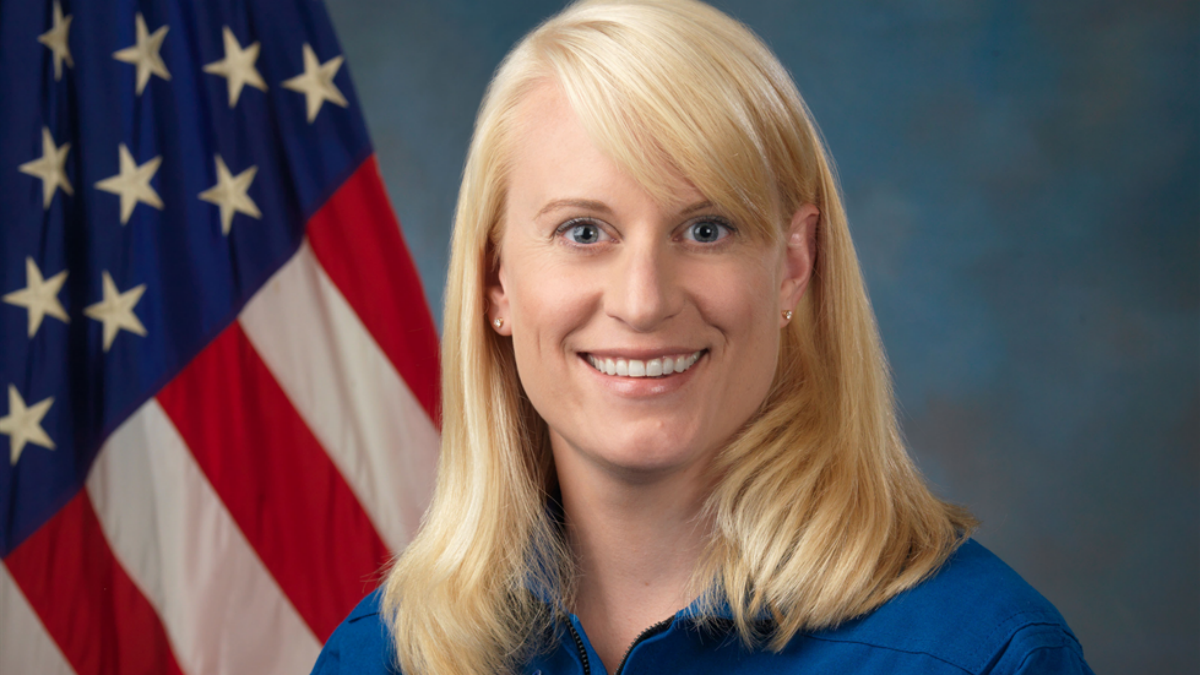Who is Kate Rubins? Nasa astronaut ready for first journey into space
Former virologist will attempt to carry out DNA sequencing onboard the International Space Station

A free daily email with the biggest news stories of the day – and the best features from TheWeek.com
You are now subscribed
Your newsletter sign-up was successful
Nasa astronaut Kathleen "Kate" Rubins is making final preparations for her first ever journey into space for a four-month stint in orbit on the International Space Station (ISS).
On 24 June, she and her two fellow mission members, Russian cosmonaut Anatoly Ivanishin and Japan's Takuya Onishi, will blast off from the Baikonur Cosmodrome in Kazakhstan in a Russian Soyuz spacecraft as part of Expedition 48/49.
Part of their research on the ISS will focus on DNA and they are hoping to carry out genetic sequencing in space.
The Week
Escape your echo chamber. Get the facts behind the news, plus analysis from multiple perspectives.

Sign up for The Week's Free Newsletters
From our morning news briefing to a weekly Good News Newsletter, get the best of The Week delivered directly to your inbox.
From our morning news briefing to a weekly Good News Newsletter, get the best of The Week delivered directly to your inbox.
"Sequencing DNA on the ISS will enable Nasa to see what happens to genetic material in space in real time, rather than looking at a snapshot of DNA before launch and another snapshot of DNA after launch and filling in the blanks," Rubins told Scientific American.
Rubins, Ivanishin and Onishi are scheduled to return to Earth on 30 October, after four months aboard the space station.
Born in Connecticut, Rubins grew up in Napa, California, and studied molecular biology at the University of California. After further studies at Stanford, she joined the US Army Medical Research Institute of Infectious Diseases and the Centers for Disease Control and Prevention, where she helped develop the first model of smallpox infection.
Following this, she headed the Rubins Lab at the Whitehead Institute for Biomedical Research, where she and 14 researchers studied viral diseases affecting Central and West Africa. She was recruited into Nasa's 20th class of potential astronauts in 2009.
A free daily email with the biggest news stories of the day – and the best features from TheWeek.com
In 2013, she told Nature magazine that space travel was one of those "childhood dreams" of which she couldn't let go.
"I thought that Nasa didn't take biologists and so nothing would come of it," she said. "But I knew I would regret it if I did not apply."
According to her Nasa profile, Rubins enjoys "cycling, swimming, flying, scuba diving and reading", as well as parachuting alongside her husband, Michael Magnani.
-
 Why is Prince William in Saudi Arabia?
Why is Prince William in Saudi Arabia?Today’s Big Question Government requested royal visit to boost trade and ties with Middle East powerhouse, but critics balk at kingdom’s human rights record
-
 Wuthering Heights: ‘wildly fun’ reinvention of the classic novel lacks depth
Wuthering Heights: ‘wildly fun’ reinvention of the classic novel lacks depthTalking Point Emerald Fennell splits the critics with her sizzling spin on Emily Brontë’s gothic tale
-
 Why the Bangladesh election is one to watch
Why the Bangladesh election is one to watchThe Explainer Opposition party has claimed the void left by Sheikh Hasina’s Awami League but Islamist party could yet have a say
-
 NASA’s lunar rocket is surrounded by safety concerns
NASA’s lunar rocket is surrounded by safety concernsThe Explainer The agency hopes to launch a new mission to the moon in the coming months
-
 Nasa’s new dark matter map
Nasa’s new dark matter mapUnder the Radar High-resolution images may help scientists understand the ‘gravitational scaffolding into which everything else falls and is built into galaxies’
-
 Moon dust has earthly elements thanks to a magnetic bridge
Moon dust has earthly elements thanks to a magnetic bridgeUnder the radar The substances could help supply a lunar base
-
 How Mars influences Earth’s climate
How Mars influences Earth’s climateThe explainer A pull in the right direction
-
 The ‘eclipse of the century’ is coming in 2027
The ‘eclipse of the century’ is coming in 2027Under the radar It will last for over 6 minutes
-
 NASA discovered ‘resilient’ microbes in its cleanrooms
NASA discovered ‘resilient’ microbes in its cleanroomsUnder the radar The bacteria could contaminate space
-
 Artemis II: back to the Moon
Artemis II: back to the MoonThe Explainer Four astronauts will soon be blasting off into deep space – the first to do so in half a century
-
 The mysterious origin of a lemon-shaped exoplanet
The mysterious origin of a lemon-shaped exoplanetUnder the radar It may be made from a former star